Sherman differential covers
The
M4 Sherman also had many variations in one of the parts that makes it
easy to recognize to most of people: the differential cover.
There are two main types for this part :
-the early 3-piece differential
cover, which is made of 3 cast parts bolted together
-the cast
one-piece cover, which has two main variations : the rounded type and the sharp-nose type.
The differential cover



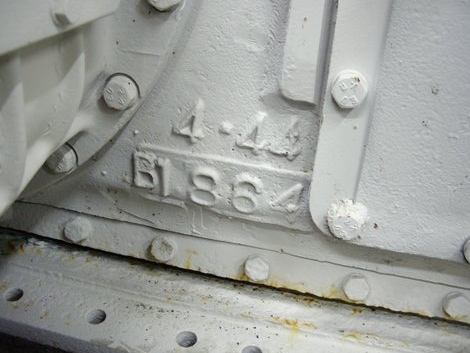
The differential cover is the piece of armor that protects the gearbox, the differential and the 2 final drives.
The construction of the differential cover is very similar from an
early model to a later one. It has 17 holes for bolts on the upper border,
11 holes on each side (8 vertical and 3 horizontal) and 20 holes on the lower border. Any model of
differential cover can be adapted on any model of Sherman hull.
3-pieces bolted differential covers


 The 3-pieces differential cover, as
seen on an early M4A4 (Serial number 4825), on an early M4A1, both
with Direct Vision, and on a late M4A4 (Serial number 21048). The shape
of the 3-pieces differential didn't change a lot between the first and
last exemplars manufactured.
The 3-pieces differential cover, as
seen on an early M4A4 (Serial number 4825), on an early M4A1, both
with Direct Vision, and on a late M4A4 (Serial number 21048). The shape
of the 3-pieces differential didn't change a lot between the first and
last exemplars manufactured.
The main difference is the form of the upper border, along the bolt
strip, which were initially protruding and exposed, but later better
protected with the addition of a lip. Even if this model of
differential cover had a great defect (it was not reliable and caused
technical problems because it was not rigid enough), Chrysler used it
on the M4A4s until the end of the production of this model.
Usually, the right-hand section of the differential carries the part
number E4151, the center part carries the part number E1232 and
the left-hand section carries the number E1231. A very
early differential has been seen with part number D50993 to the
left side, the number has been "drip welded".
1-piece cast differential covers


The
1-piece cast differential cover, as seen on an M4A2(75) with small
hatches (part number E4186) and on an M4A3(75)W with large hatches
(part number E8543). The shape of the 1-piece cast differential changed
during its
manufacture, the earlier version being more rounded, and the later
version having a "sharp-nose" style. The upper border, along the bolt
strip,
also evolved, so that the bolts were better protected agains shells and
explosive devices. The front towing lugs and the footsteps also evolved during the production (see below)
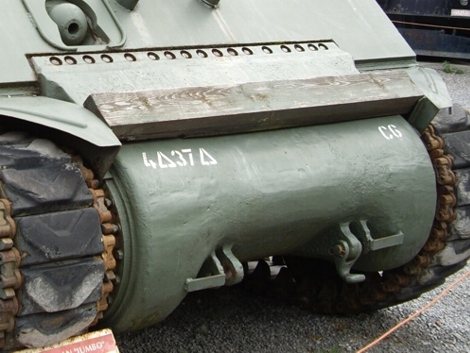
The M4A3E2 tank, better known as "Sherman Jumbo", has a specific variant of the 1-piece cast differential cover.
The protection of the differential was increased to
5 1/2 inches.
The upper bolt strip
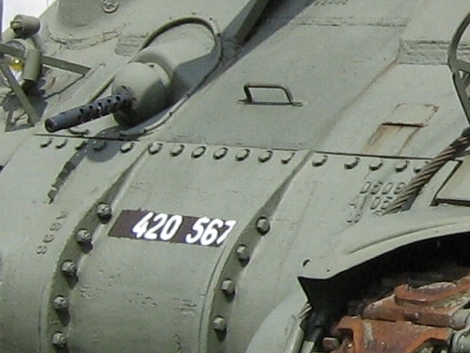
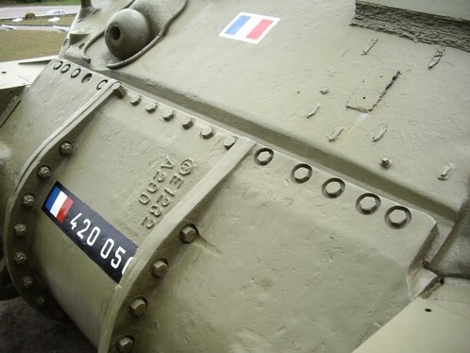
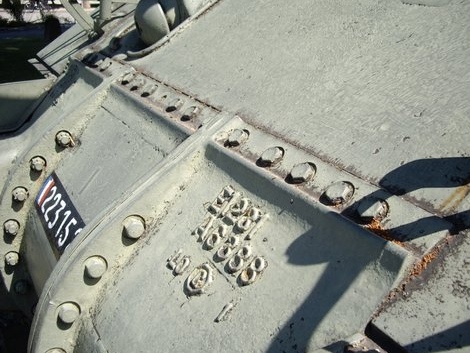
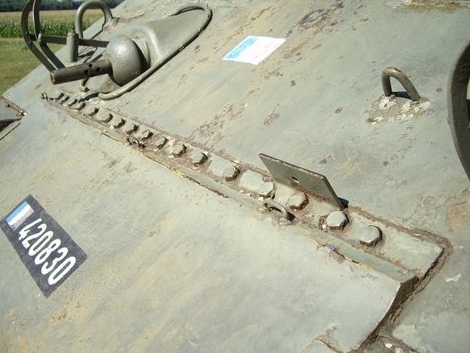
 The upper bolt strip evolved during the Sherman production. Earlier models have protruding bolts with no protection at all.
The upper bolt strip evolved during the Sherman production. Earlier models have protruding bolts with no protection at all.
Later types have a protective lip to increase the protection of the bolts, and the last ones have a small depression to protect the boltheads.
The front tow lugs and foot steps
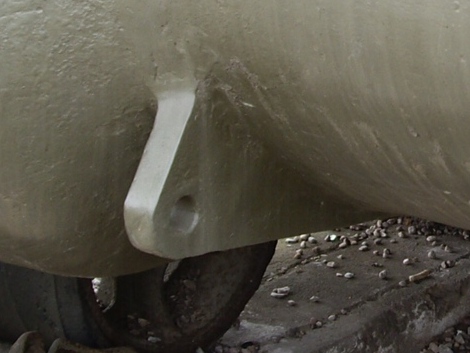
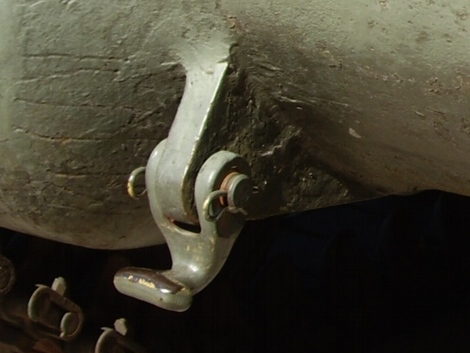
The front towing lugs, molded in the
differential cover, evolved with it. These two pictures show the early
model of towing lug seen on E4186 differential covers. The second
picture also shows the shacke often used as a footstep.
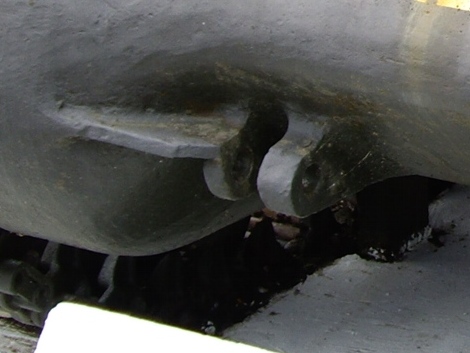
This photos shows an early cast footstep, as seen on an early E8543 differential cover installed on the M4A2 "Massaoua". The period documents mention that
the cast-in steps interfered with the crew's ability to work the quick release
towing shackles, so they changed over to little welded on steps, as seen below (Joe DeMarco)
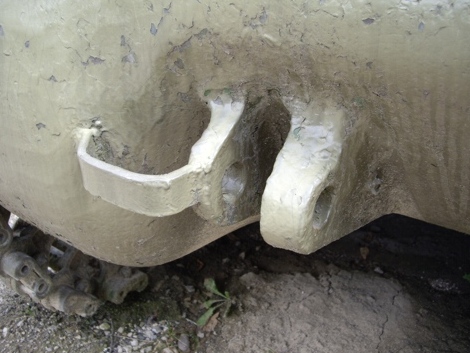
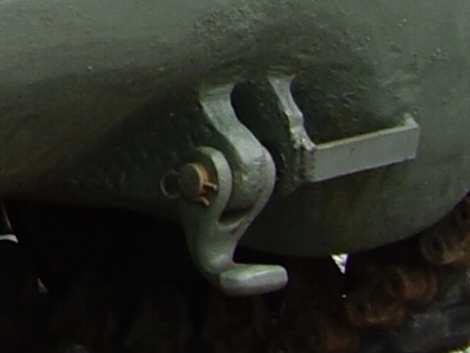
Two different models of welded footsteps, the last one seems to be a
field addition, seen on the M4A3E2 "Jumbo" from the Brussels Tank
Museum.